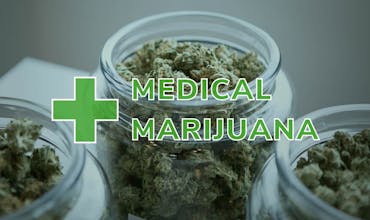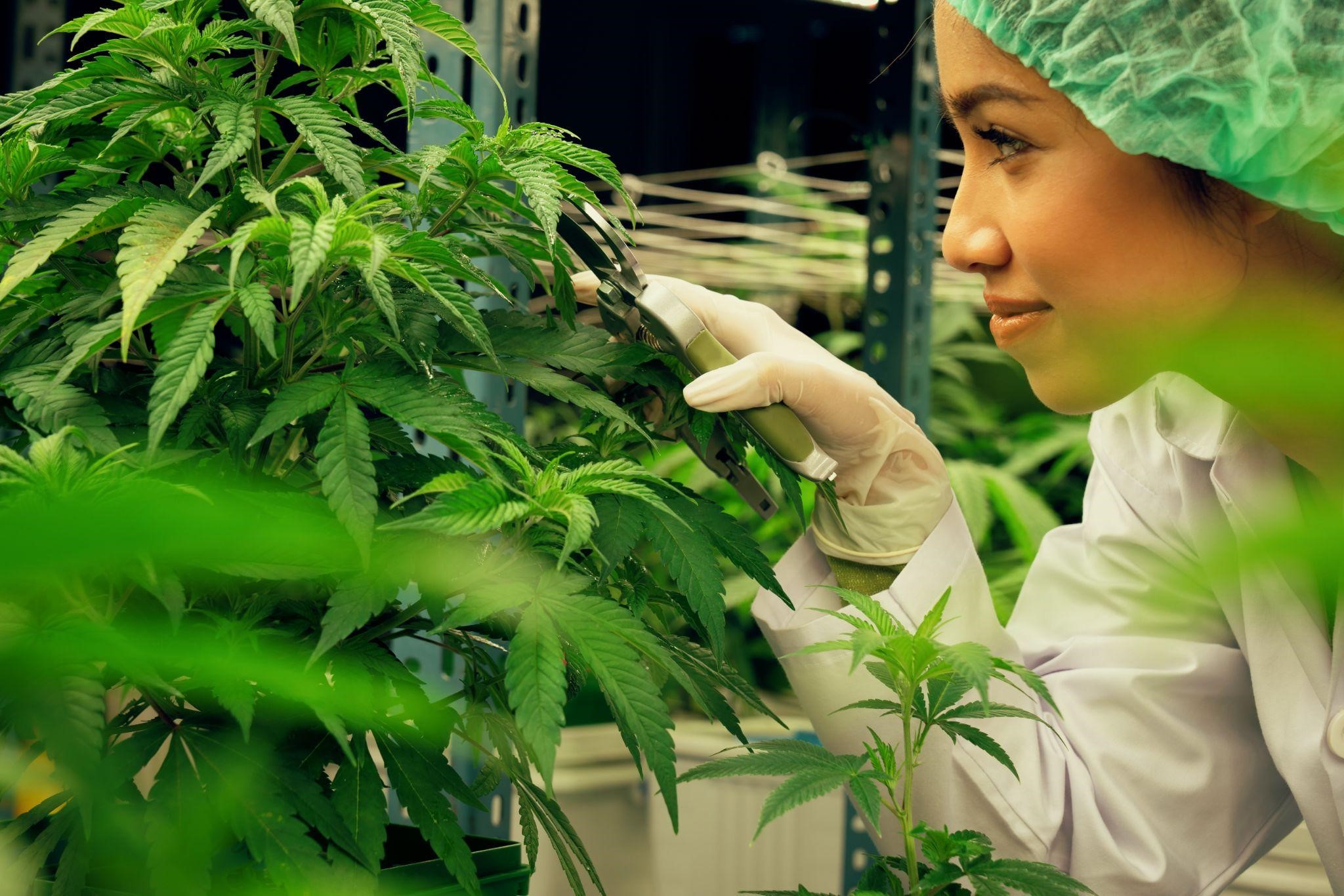Harnessing the Potential of Medical Marijuana: Comprehending Its Duty in Encouraging Health and Alleviating Health Issues

The Scientific Research Behind Clinical Cannabis
The effectiveness of medical cannabis in treating different health conditions is rooted in its communication with the endocannabinoid system within the human body. This complex organic system plays an important function in managing different physical procedures such as cravings, pain mood, memory, and experience. The active substances in medical marijuana, understood as cannabinoids, mimic the endocannabinoids generated normally by the body, binding to cannabinoid receptors to modulate these bodily functions.
One of the primary cannabinoids found in medical cannabis is cannabidiol (CBD), which is non-psychoactive and has been studied for its potential therapeutic effects. By comprehending the science behind exactly how medical cannabis communicates with the endocannabinoid system, researchers can continue to explore its potential in promoting health and reducing various health issues.
Therapeutic Qualities of Marijuana
Comprehending the complex interactions between cannabinoids and the endocannabinoid system clarifies the restorative buildings of marijuana for numerous wellness problems. Cannabinoids, such as tetrahydrocannabinol (THC) and cannabidiol (CBD), are the main substances in charge of the medicinal advantages of cannabis. THC is recognized for its psychedelic impacts, but it likewise exhibits analgesic, anti-inflammatory, and anti-nausea residential properties. On the other hand, CBD is non-psychoactive and has shown terrific potential in taking care of pain, stress and anxiety, epilepsy, and various other neurological conditions.
Researches have actually shown the efficiency of medical cannabis in alleviating signs and symptoms connected with persistent discomfort, multiple sclerosis, and chemotherapy-induced nausea or vomiting and vomiting - Medical Cannabis Clinic. Furthermore, marijuana has actually shown guarantee in treating psychological health and wellness problems like stress and anxiety, clinical depression, and trauma (PTSD)
In addition, the anti-inflammatory buildings of cannabinoids make marijuana a possible therapy alternative for inflammatory conditions such as arthritis and inflammatory digestive tract illness. The healing capacity of marijuana continues to be checked out via research, providing brand-new insights right into its function in advertising wellness and addressing a large range of health concerns.
Medical Marijuana for Persistent Pain
Exploring the efficiency of medical marijuana in taking care of chronic discomfort reveals its prospective as a sensible treatment option for individuals seeking option discomfort alleviation approaches. Persistent discomfort impacts millions worldwide, commonly bring about a decreased lifestyle and reliance on traditional discomfort medicines that might include unwanted side effects or threats of dependency. Clinical marijuana, with its active compounds like THC and CBD, has actually revealed assurance in reducing chronic discomfort by interacting with the body's endocannabinoid system to regulate discomfort perception.
Researches have shown that clinical marijuana can effectively reduce neuropathic pain, arthritis-related discomfort, and pain associated with problems like several sclerosis. Its anti-inflammatory properties can likewise add to pain relief in problems such as fibromyalgia. Clinical marijuana offers an extra natural method to discomfort administration, possibly minimizing the demand for opioids and other pharmaceuticals with harsher side results.
As research right into the advantages of clinical cannabis for persistent pain remains to broaden, its duty in supplying alternative pain relief services ends up being significantly substantial for patients and doctor alike.

Marijuana for Anxiety and Stress And Anxiety
Study demonstrates the possibility of cannabis in mitigating signs and symptoms of anxiety and tension, using an appealing avenue for those looking for option therapeutic choices. Stress and anxiety and tension prevail mental health and wellness worries that can substantially influence an individual's well-being and daily performance. Traditional treatments such as treatment and drug might not constantly work for every person, causing an expanding interest in alternative solutions like clinical marijuana.
Cannabis includes substances called cannabinoids, such as cannabidiol (CBD) and tetrahydrocannabinol (THC), which connect with the body's endocannabinoid system to manage different features, consisting of state of mind and tension actions. Studies have shown that CBD, specifically, has anxiolytic buildings, implying it can help in reducing anxiousness levels. THC, on the other hand, might supply leisure and mood-lifting effects that can be helpful for managing stress and anxiety.
Individual reactions to cannabis can vary, so it is vital for people thinking about marijuana as a treatment option for anxiety and stress to speak with healthcare professionals well-informed about medical marijuana to establish one of the most appropriate products and does for their demands.
Cannabis in Epilepsy Treatment
With the proven efficiency of marijuana in resolving anxiety and anxiety, attention has actually transformed towards its possible function in the treatment of epilepsy. Epilepsy is a neurological problem defined by persistent seizures, which can substantially affect a person's high quality of life. For individuals whose seizures are not properly controlled with standard treatments, discovering alternate therapeutic alternatives such as medical marijuana has become wikipedia reference significantly appropriate.
Research on the usage of cannabis for epilepsy is still progressing, but there is expanding proof to look at this website suggest that particular compounds in marijuana, such as cannabidiol (CBD), may use anticonvulsant effects. CBD, in specific, has actually shown assurance in decreasing the regularity and severity of seizures in some individuals with epilepsy, bring about the approval of Epidiolex, a CBD-based drug, for the treatment of specific kinds of seizures.
While more research studies are required to fully comprehend the devices behind cannabis' prospective advantages for epilepsy and to determine the most reliable formulations and dosages, the existing findings suggest a promising future for incorporating clinical marijuana into epilepsy treatment strategies.
Verdict
In verdict, clinical marijuana has actually revealed encouraging therapeutic homes in dealing with Source various health problems such as persistent discomfort, stress and anxiety, epilepsy, and anxiousness. Recognizing the function of clinical cannabis in health care can lead to enhanced treatment options for people looking for alternative solutions.
From persistent pain management to stress and anxiety relief and also in the treatment of epilepsy, the role of clinical cannabis is multifaceted and interesting. Medical Cannabis Card.Checking out the effectiveness of medical marijuana in taking care of persistent pain discloses its prospective as a viable treatment alternative for individuals seeking choice pain alleviation methods. Clinical cannabis, with its energetic compounds like THC and CBD, has actually shown assurance in relieving chronic pain by interacting with the body's endocannabinoid system to manage discomfort understanding
Research studies have actually indicated that clinical cannabis can efficiently lower neuropathic pain, arthritis-related pain, and discomfort associated with conditions like several sclerosis.In final thought, clinical marijuana has actually revealed encouraging therapeutic residential or commercial properties in dealing with different wellness concerns such as persistent discomfort, epilepsy, stress and anxiety, and anxiety.
 Haley Joel Osment Then & Now!
Haley Joel Osment Then & Now! Robert Downey Jr. Then & Now!
Robert Downey Jr. Then & Now! Charlie Korsmo Then & Now!
Charlie Korsmo Then & Now! Bo Derek Then & Now!
Bo Derek Then & Now! Dawn Wells Then & Now!
Dawn Wells Then & Now!